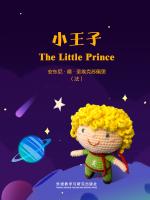The little Prince
A Timeless Journey into the Depths of the Heart: Reflections on The Little Prince
Antoine de Saint-Exupéry’s The Little Prince, a literary gem cherished across generations, is more than a simple children’s story. Published in 1943, this novella weaves a poignant tale through the eyes of a pilot stranded in the Sahara Desert, where he encounters a mysterious young prince from Asteroid B-612. Through their conversations, Saint-Exupéry explores profound themes of love, loneliness, and the loss of innocence, offering readers—both young and old—a mirror to their souls. In this review, I delve into the novella’s enduring magic, its philosophical insights, and its timeless relevance in a world often blinded by superficiality.
The Innocence of the Little Prince: A Critique of Adult Worldview
The Little Prince’s character embodies pure, untainted curiosity and honesty. His perplexity at the adult world’s obsession with “numbers” (wealth, power, and status) highlights Saint-Exupéry’s critique of societal values. When the prince meets the king who claims to rule everything yet commands only what naturally occurs, or the businessman who hoards stars to “own” them, their absurdity becomes a stark contrast to the prince’s genuine concern for his rose and his responsibility toward her.
The pilot’s childhood drawing of a boa constrictor digesting an elephant, misunderstood as a hat by adults, symbolizes how grown-ups often lose the ability to see with the heart. The prince’s insistence that “what is essential is invisible to the eye” challenges readers to look beyond appearances, a lesson as vital today as it was in 1943. In a digital age dominated by materialism and superficial connections, the novella reminds us to nurture the childlike wonder that once made the world magical.
Love, Loss, and Responsibility: The Rose and the Fox
Central to the story is the prince’s complicated relationship with his rose, a delicate, proud creature who both charms and frustrates him. Their bond reflects the joys and pains of love: the rose’s thorns symbolize the defenses we erect to hide vulnerability, while the prince’s eventual departure highlights the sacrifices inherent in letting go. His regret upon leaving her—“I should never have listened to her… One must not listen to the flowers. One must look at them and breathe their fragrance”—echoes the universal ache of unappreciated love.
The fox’s introduction of the concept of “taming” (establishing connections) deepens the novella’s exploration of love as a choice and a responsibility. “You become responsible, forever, for what you’ve tamed,” the fox tells the prince, emphasizing that love requires commitment and care. This idea resonates powerfully, reminding readers that meaningful relationships demand effort and vulnerability. The fox’s farewell, tinged with sadness yet rooted in gratitude, captures the bittersweet reality of love that leaves an indelible mark, even after goodbye.
Loneliness and the Search for Connection
Throughout his journey, the prince encounters various inhabitants of different planets—each trapped in their own form of loneliness. The drunkard drinks to forget his shame about drinking, the lamplighter slavishly follows orders without purpose, and the geographer ignores the world he’s supposed to document. These characters illustrate how isolation can stem from pride, routine, or indifference, mirroring the modern struggle to find meaning in a fast-paced, disconnected world.
The prince’s own loneliness is most poignant in his conversations with the pilot. His longing to return to his rose, coupled with his fear of being forgotten, speaks to the human need for belonging. When he says, “It is such a long way from where you are to where I live…,” he articulates the universal ache of separation from those we love. Yet, the pilot’s friendship offers hope, showing that genuine connection can transcend physical distance and heal emotional wounds.
Mortality and the Weight of Memory
The novella’s tender treatment of mortality is both heartbreaking and hopeful. The prince’s disappearance, facilitated by a venomous snake, is not framed as a tragedy but as a return to his beloved rose—though the pilot fears he will lose his friend forever. The snake’s promise that “I shall send you back whence you came” hints at an otherworldly reunion, softening the finality of death.
Saint-Exupéry’s own mysterious disappearance during World War II adds a layer of poignancy to the story. The prince’s legacy lives on in the pilot’s drawings and memories, just as the author’s words endure, a testament to the power of art and love to defy oblivion. The pilot’s fear of seeing a star and wondering if the prince is laughing on one of them reflects our collective struggle to find solace in loss, reminding us that those we love never truly leave us if we keep them alive in our hearts.
Conclusion: A Book for All Ages
The Little Prince is a masterstroke of simplicity and depth, a story that grows more profound with each reread. Saint-Exupéry’s elegant prose and whimsical illustrations mask a profound meditation on what it means to be human: to love, to lose, to seek meaning, and to hold onto wonder in a world that often dismisses it as childish.
For children, it is a tale of adventure and friendship; for adults, a gentle rebuke and a tender reminder. In an era when “essential” things—kindness, empathy, connection—are often overshadowed by greed and haste, the novella’s wisdom shines like the prince’s star in the desert night. As the fox says, “You only understand what you tame.” In taming our hearts to the beauty of simplicity, we rediscover the magic that makes life worth living.
The Little Prince is not just a book; it is a lantern for the soul, guiding us back to the truths we once knew but forgot to see. It reminds us that the most important journeys are not across miles, but into the depths of our own hearts.



 京公网安备 11010802032529号
京公网安备 11010802032529号